With the arrival, unfortunately to stay, of the Covid-19 disease (not to call it "super cold bastard with possible multiple conditions"), the books on coronavirus they proliferated like another pandemic, in parallel to the incipient and neurotic search for information.
Curiously, the first thing we encountered, even in the early stages of the nightmare come true, was a fictional novel by Dean koontz, erected as Nostradamus of the 80st century by ficting back in the XNUMXs a tragic becoming pandemic. To make matters worse, also based in the same city of Wuhan where it all began. The analogies were lurid and the reissues numerous.
Then they already arrived pandemic books more brainy and non-fiction. From rehearsals of the illustrious on duty who already knew everything; even informative works that bring us closer to the needs of the bug; or even reaching volumes for conspiracy minds capable of considering that everything is a plan to insert "chis" through vaccines.
Today we are all scientists at the bar counter; experts stunned with the incapacity of politicians and scientists; daring opinion makers with solutions for all ills. Types and types that Moses would have liked to have known us to overcome the plagues of Egypt.
The point is that I have encouraged myself with a selection of works in which to lose yourself, if it is that in our common and worldwide obsession with these unfortunate days governed by a microscopic being, you still want to immerse yourself in readings about it. For all tastes, from all perspectives and ideologies ...
Recommended Reading on Covid-19
The eyes of the dark
I am that I am more of fiction. Something that, as the patio is, is almost the best option. Hence my note of a novel as a bedside book to face the bug in a literary way.
Regardless of those successes or coincidences with the coronavirus pandemic that are discovered during reading and that represent the kernel of that dark side of all science fiction work, the review of this old plot reveals a suggestive story of survival.
Tina survives her melancholy in part thanks to her dedication to a business show in which she must continue to appear the same energy and enthusiasm as always.
But Tina's ghosts are persistent in their rawness. Their 12-year-old son Danny died and the marriage breakdown marks a before and after in the recent period of the last year.
When a thriller is compatible with such a strong emotional part, it has won me over. And while this novel runs more lightly in terms of plot or twists, the weight of its human transcendence can take it all.
In her dark existence beyond the spotlight, one good or bad day Tina discovers a message in her son's room. From that moment we enter that paranormal scenario that the author likes so much, but this time everything is soaked by that feeling of epic overcoming in the face of death, of a possible recovery of communication with that person you forgot say for the last time "I love you".
Only Tina's son doesn't write the message just because. The reasons for claiming the attention of his mother take off a disturbing story of deep suspense that obviates any intention of terror to provide a review of emotions from the fantastic.
First line
It is important, if not essential, to dwell on the experience and vision of health workers faced as our most important army in the history of humanity. The voice of the only ones who can avoid disaster ...
On February 27, 2020, the first case of coronavirus was detected in a Spanish intensive care unit. Gabriel Heras, a doctor in the same unit, experienced the outbreak of the epidemic and its sharpest peak on the front line. This is the front-line account of one of the deadliest wars we have faced in decades. The testimony of a professional focused on saving the lives of his patients overcoming the shortage of resources, personnel and knowledge about the virus.
In some pages loaded with tension and fear, but also with hope and camaraderie, Heras offers an example of the ability to overcome health workers in the face of the lack of foresight and lack of humility of those responsible for managing the worst health crisis in the history of Spain .
At the same time, his story highlights the shortcomings of a system that needs profound changes to adapt to the realities of the XNUMXst century and guarantee the well-being of citizens. "With this crisis we have discovered that Spain does not have the best health system in the world, but it does have the best professionals," Heras defends.
Coronavirus the latest pandemic?
It is true that for a long time the thing seemed about to arrive. As we learned of small sources of infection from other novel viruses, we always crossed our fingers and the ball ended up hitting the post. But this goal for the squad had to come ...
In the 2st century we have suffered three epidemics due to Coronavirus, but the current one, caused by SARS-CoV-XNUMX, is the one with the greatest extension, health impact and social and economic consequences.
As it is a recent epidemic, we are learning every day its behavior, transmission pattern and the severity of the disease it produces, COVID-19, but there is still a high degree of uncertainty about its evolution. Why has he appeared at this time and in the city of Wuhan? How has it spread? How is the virus that produces it and what is its origin? Are we ready to face this new disease? How can we treat it and control the epidemic? What will its impact be on our lives?
This book clearly explains a complex issue and attempts to answer the questions raised by the emergence of any new epidemic on the basis of science.
The great manipulation
This is the story of how millions of people, regardless of their ideology, feelings, or fears, were victims of the Great Manipulation.
Mass manipulation is a phenomenon that political power has used throughout history. Our times were not going to be an exception, and television, together with the phenomenon of social networks and the masses of harassment, have formed a deadly trident against the truth.
While the eye of the population was immersed in the Covid-19 pandemic, we have witnessed the greatest spectacle of mass manipulation of the last century in our country, where the citizen has been deprived of information that could have prevented disaster.
The deadliest threat
Another prophetic book. To the extent that there should always be previous books on viruses ...
Our war on pandemics and how to avoid the next one
This book, written by one of the world's leading experts in epidemiology, anticipated the pandemic that is hitting the planet step by step. This updated edition includes a prologue that thoroughly analyzes the coronavirus crisis: what is covid-19, what authorities should do, and how to deal with the next crisis.
Unlike natural disasters, whose impact is limited to a specific territory and period of time, pandemics have the ability to forever alter people's lives on a global scale: work, transportation, the economy, and even life. People's social lives can change radically.
As Ebola, Zica, yellow fever or now the coronavirus have shown, we are not prepared to manage a pandemic crisis. What can we do to protect ourselves from our deadliest enemy?
Drawing on the latest scientific discoveries, Osterholm explores the causes and consequences of a pandemic and ways to tackle it on a global and individual scale. The author delves into the problems that loom over us due to the risk of the spread of a virus without a cure and the complexity that the search for that cure entails. Written as if it were a medical thriller, the book will help us understand the dangers of the current situation and the plan of action that we must follow.
A day in the life of a virus
A great book of Miguel Pita. A virus can technically knock out an entire civilization in the XNUMXst century. But what exactly is a virus? How is it possible that something that cannot even be described as living can have such capacity and impact on the world we know? Viruses are little more than scattered fragments of genetic material that appear and disappear from time to time in the history of life.
In 2020, we have learned through experience that such an irruption can change the course of history. A small urgent manual, for all types of readers, that explains, in a way that is as clear as it is entertaining, what the coexistence of viruses with our species (and others) consists of, as well as the great battle that takes place inside our organism when these invisible enemies gain access to it. With all the rigor of scientific reasoning and with the best examples, precision and simplicity of good dissemination.
The bag or your life. Chronicle of a world with coronavirus
The journalist Rosa María Artal goes through a story - dotted with details, analysis and intense emotions - that begins by greeting "Happy New Year 2020" to get us into a whirlwind that changed everything and does not see an immediate end.
A simple virus has disrupted world society as no premeditated weapon ever did, in depth and extent. The coronavirus has been an amendment to the entire system that despised what was valuable and even indispensable for the common good, for the profit of a few. It was public health that took care of our health and had been decimated by neoliberal policies. It was, is, ordinary people who sustain the countries, especially in the most compromised situations.
Spain will suffer a double viral attack: from the coronavirus and from a predatory opposition, with great support from the media and other branches of power. A heavy backpack that we have carried for decades. In Spain, the never resolved plasters have all emerged at their maximum intensity.
Hardly assumed that a pandemic invades us, its victims and to come, the main debate is whether to bet on health or economic activity. Give them the bag again or bet on life.
Crispavirus
With the mastery that characterizes him and the experience of his long journalistic career, Ernesto Ekaizer describes in Crispavirus the reissue of a cycle of the contemporary political history of Spain. A tough policy cycle. A cycle of extreme polarization, this time without terrorism. A cycle that precedes with its virulence - or intends to do so - the governmental changes in our country.
It is a known method, which we can call a long-term political breakdown, which was already applied in 1993-1996, in 2004-2011, in 2016-2018 and right now, at a time when Spain is besieged by the consequences. social and economic conditions of COVID-19.
If that caused decomposition finally managed to open the way to the alternation during a long period of hegemony of the bipartisanism of the Spanish Socialist Workers Party (PSOE) and the Popular Party (PP), why would this strategy fail before a government, the PSOE and United We Can, which lacks a parliamentary majority and is incapable of forging solid and lasting alliances?
Pandemocracy
According to its etymology, a pandemic is an infectious disease that affects everyone, while an epidemic would have a geographically limited area. We could say that our government instruments are designed to manage epidemics and not pandemics, insofar as they are local and not global institutions.
Hence the first sense of powerlessness in the face of a phenomenon that demands greater political integration of humanity, in the line of strengthening transnational institutions or global governance and, in general, a transition towards forms of cooperative intelligence, clearly insufficient in the world. world we live in.
The definition of democracy indicates that all those affected by a decision must be able to participate in it, that the community of those affected must coincide with that of those who decide. In this sense, the coronavirus crisis would be a pan-democratic event, like all global risks.
There is the paradox that a risk that equalizes us all reveals at the same time how unequal we are, causes other inequalities and puts our democracies to the test. All of this is discussed in this book, an urgent philosophical reflection carried out at an exceptional moment in our history.
Wuhan Diary
"In a regime in which the only acceptable reality is that dictated by the official media, the work of Fang Fang's witness is dangerous and heroic", Antonio Muñoz Molina.
On January 25, 2020, Fang Fang started a blog documenting life in Wuhan during the coronavirus quarantine. Every night he wrote about family and friends and analyzed the evolution of the crisis and the response of the Chinese government.
His diary has become one of the most important sources to know the impact of the virus and has been read by millions of people around the world. Its relevance has been collected by media such as The New York Times, El País y The Guardian.
Fang Fang has found the courage to unravel what was happening live and direct from the first country to face the greatest health, social and economic crisis in our history. His shocking testimony takes on special value insofar as it was able to shed light on a few days when the Chinese government faced a still unknown threat.
The huge audience that these pages have received, full of urgency, honesty and anger, has made Fang Fang one of the most necessary and relevant intellectuals to emerge as a result of this catastrophe. Always linked to Wuhan and with a consolidated literary career, she has been awarded, among other awards, with the Chinese Literature Media Award and the Lu Xun Literary Prize.

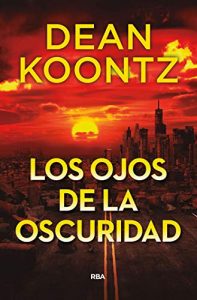
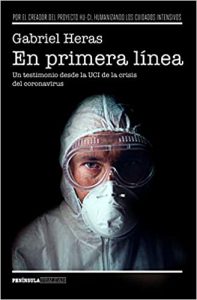
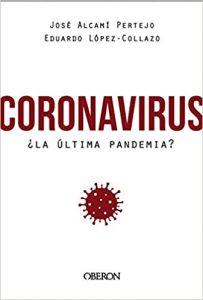
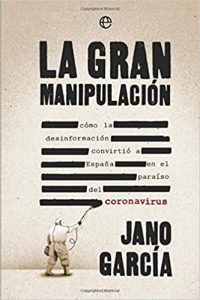
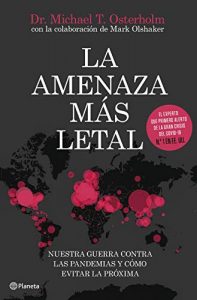
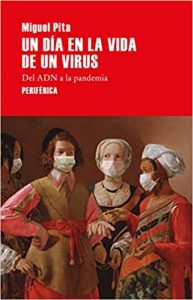
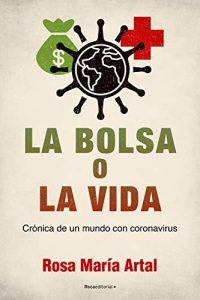
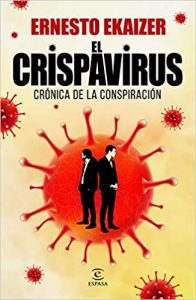
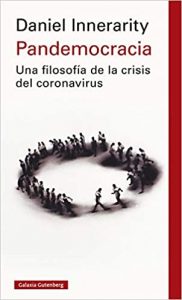
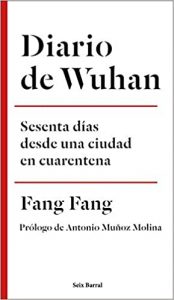
1 comment on «Recommended books about coronavirus»